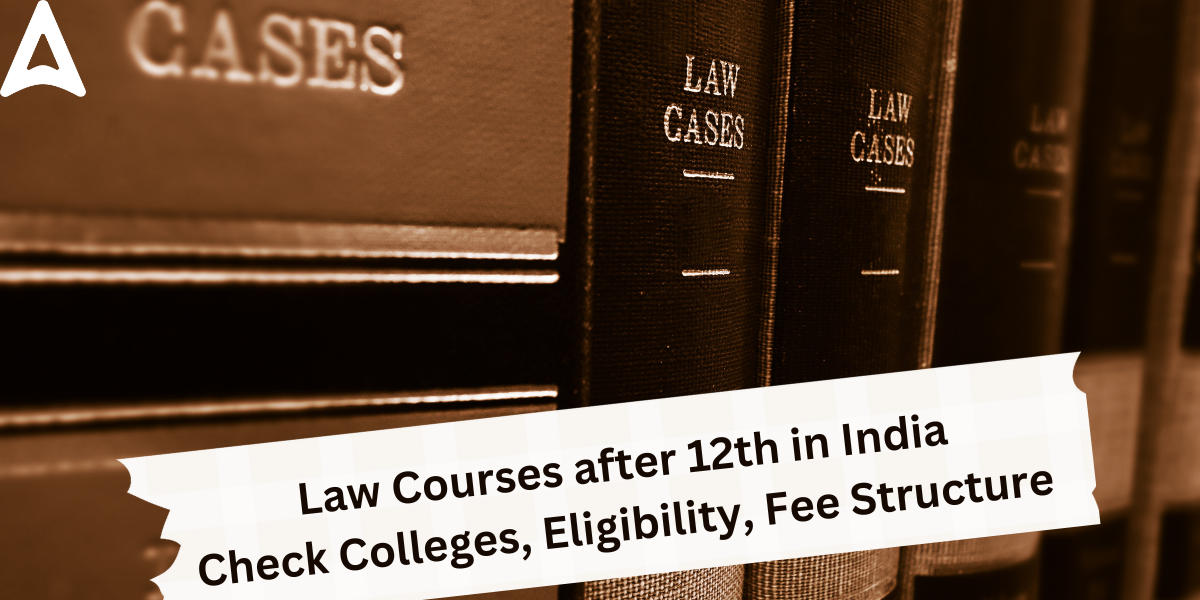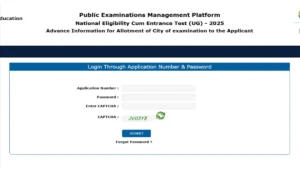Table of Contents
Law courses after 12th in India
Law Courses after 12th: The Class 12 Examinations results of almost all the boards have been released or will be released shortly. As the results have been released or will be released shortly, students will be wondering “What to do after Class 12?”.The stream you choose in Class 11/12 plays a big role in determining which course to do in future. Students in the commerce field may opt to go for a Bachelor of Commerce, a three-year undergraduate programme or for competitive exams such as Chartered Accountancy, Company Secretary, etc. Students who had opted for the Science stream may appear for JEE or go for NEET. Students who opted for Arts can go for Civil Service Examinations or appear for CLAT to pursue LLB, etc.
Law courses after 12th Arts, Commerce, Science
In this article, we will be discussing the law as a Career after Class 12?. In this section, we will be giving you an overview of Law as a course after Class 12. The profession of Lawyer is one of the most renowned professions in the country. The legal system and framework play an important role in the development of any country. Lawyers hence are always in demand to fight a suit. Law is itself a very vast topic. The law covers Criminal Law, Civil Law, Corporate Law, Labor Law and many more. By studying Law you will have a deep understanding of the legislature, the constitution, why certain laws and enactments were made and how they are applied to our daily lives.
Law courses after 12th Branches
As we discussed in the earlier section, Law in itself is a vast topic, there are various branches of law. Let us know about some of them:
- Criminal Law: Criminal Law deals with crimes in general and lists down punishment for the criminals. The cases of Murder, Robbery and Rape are dealt with in the Criminal Law.
- Civil Law: Civil law is quite different to criminal law. Civil Law covers matters such as disputes between organizations, Disputes relating to ownership of property, CopyRight Issues, Issues relating to tenancy, etc. This law unlike Criminal Law does not direct imprisonment, etc it rather asks the defaulter to pay compensation or fine.
- Common-Law: As the name suggests it is that law which is useful in our common lives. Examples of common law include the law of Marriage, the Law of Divorce, etc.
- Corporate Law: Corporate Law is binding on corporations. They set some rules and regulations which the Corporates have to follow. For example, The Companies Act,2013. Banking Act applicable to Banks
- Labour Law: The labour law protects the interest of the Employees and the Labour Class. It prescribes limits within which employees can work. They help prevent exploitation of the employees by their employers
Courses in Law Field After Class 12th
Now as we have understood about Law and various branches of law, let us have a look at the courses available after Class 12. The most common practice is to appear for CLAT or Common Law Admission Test, which is the entrance exam for admission into various Law Universities across the country. With the help of the table below you will be able to understand better :
| Law Courses available after Class 12th | Full Form of the courses available after Class 12 | Duration of the course |
| BBA + LLB (Hons) | Bachelor of Business Administration & Bachelor of Legislative of Law (Honours) | 5 years |
| B.Com + LLB | Bachelor of Commerce & Bachelor of Legislative of Law | 5 years |
| B.Com + LLB (Hons) | Bachelor of Commerce & Bachelor of Legislative of Law (Honours) | 5 years |
| BSc + LLB (Hons) | Bachelor of Science & Bachelor of Legislative of Law (Honours) | 5 years |
| BTech + LLB | Bachelor of Technology & Bachelor of Legislative of Law | 6 years |
| BA + LLB | Bachelor of Arts & Bachelor of Legislative of Law | 5 years |
| BSL + LLB | Bachelor of Socio-Legal Sciences & Bachelor of Law | 5 years |
| BSc + LLB | Bachelor of Science & Bachelor of Legislative of Law | 5 years |
| BA + LLB (Hons) | Bachelor of Arts & Bachelor of Legislative of Law (Honours) | 5 years |
| BBA + LLB | Bachelor of Business Administration & Bachelor of Legislative of Law | 5 years |
Law courses after 12th Entrance exams
There are a lot of entrance exams for those who want to pursue law from different universities. To get admission into the National Law Universities or other such prestigious universities, CLAT is the most preferred mode. CLAT offers admission into various Law Universities across the country. Other Universities may also conduct their own entrance exams as well.CLAT is held every year and you can appear for it after Class 12. In order to pursue LLB Courses abroad, you will have to appear for LSAT or any specified entrance exam which is accepted by the respective universities.
Law courses after 12th Eligibility Criteria
| Courses Name | Eligibility Criteria |
|---|---|
| Certificate course in Law | Passed 10th/ 10+2th/ Graduation in any discipline. Some courses are also suitable for working professionals in law and other fields. |
| Diploma in Law | Passed 10+2 from a recognized board in any stream. For post-graduate diploma courses, one must complete graduation in any discipline from a recognized University. |
| Bachelor of Law (LLB) | Passed 10+2 from a recognized board with a minimum of 45% marks |
| BA LLB/ BSc LLB/ BCom LLB/ BSL LLB/ BTech LLB | Passed 10+2 from a recognized board with a minimum of 45 – 50% marks |
| Master of Laws (LLM) | Completed any graduation degree course in law |
Law Courses After 12th Fees
| Course Name | Average Fees |
|---|---|
| Certificate in Law | INR 1,400 – INR 27,000 |
| Diploma in Law | INR 6,500 – INR 50,000 |
| Bachelor of Law [LLB] | INR 2,900 – INR 6,94,000 |
| BA LLB | INR 3,720 – INR 8,00,000 |
| PG Diploma in Law | INR 3,600 – INR 7,60,000 |
| Master of Law [LLM] | INR 1,320 – INR 4,00,000 |
Law Courses After 12th Duration
The duration of all the above courses is 1 year to 5 years depending on the course.
Law courses after 12th in India: FAQs
Q1. Is Law a good option after Class 12?
Yes, the demand for lawyers and advocates is at an all-time high. Pursuing a Law Course is a very renowned profession and lawyers command huge respect.
Q2. How to pursue Law after Class 12?
You can pursue Law after Class 12 by enrolling yourself in an LLB program. Generally, the LLB Program admission takes place via the CLAT Exam, however, some universities can follow a different route.





 NEET City Intimation Slip 2025 Available...
NEET City Intimation Slip 2025 Available...
 CUET UG Exam Schedule 2025 Out Soon @cue...
CUET UG Exam Schedule 2025 Out Soon @cue...
 NTA NEET Admit Card 2025 on May 1, Check...
NTA NEET Admit Card 2025 on May 1, Check...






